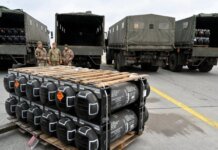Leading Russian industrial companies, including railways, car manufacturers, and metallurgical enterprises, are reducing working weeks or sending employees on forced leave. This is happening due to the slowdown of the military economy, stagnation of domestic demand, and declining exports.

From railways and automotive to metallurgy, coal, diamonds, and cement – some of Russia's largest industrial companies are sending employees on forced leave or reducing staff. The reason is a slowdown in the military economy, stagnant domestic demand, and declining exports. This is reported by Reuters, writes UNN.
Details
Reuters identified six companies in Russia's mining and transport sectors, many of which are industrial giants, that have cut the work week in an attempt to reduce payroll without officially increasing unemployment.
For example, Cemros, Russia's largest cement producer, switched to a four-day work week until the end of the year to retain staff amid a sharp downturn in the construction industry and rising cement imports.
According to a company spokesperson, increased imports from China, Iran, and Belarus, as well as a decrease in new construction, led to a drop in demand for cement. Cemros predicts that cement consumption in Russia will fall below 60 million tons this year — a figure last recorded during the COVID-19 pandemic.
Russia's Ministries of Labor and Industry did not respond to Reuters' requests for comment.
The Center for Macroeconomic Analysis and Short-Term Forecasting (an influential Russian NGO) reported that non-defense sectors have shrunk by 5.4% since the beginning of the year. The Center predicts a significant slowdown in GDP growth — to 0.7–1.0% in 2025.
In 2022, when Putin ordered troops into Ukraine, the economy contracted by 1.4%, but in 2023 and 2024, it grew by 4.1% and 4.3% respectively. For 2025, the Ministry of Economy forecasts growth of only 1.0%.
Despite economic difficulties, the unemployment rate has fallen to a record low of 2.1% due to a tight labor market, according to state statistics.
Putin publicly dismisses warnings from leading bankers about stagnation, claiming that the government is deliberately slowing the economy to curb inflation, which is expected to be 6.8% in 2025.
Imports from China, high rates
Economists note that companies are facing increasing challenges: high interest rates, a strong ruble, declining domestic demand, weak exports due to sanctions, and cheap imports from China.
Russian Railways, which has 700,000 employees, offered central office staff three additional days off per month at their own expense, two sources told Reuters.
The company, long considered a mirror of the Russian economy — especially raw material exports — is experiencing a drop in profits due to reduced transportation of coal, metals, and oil. Russian Railways declined to comment.
Large enterprises in Russia switch to a shortened week09.10.25, 02:26 • 2896 views
Gorky Automobile Plant (GAZ), which manufactures vans and has at least 20,000 employees, switched to a four-day week in August — as did KamAZ (about 30,000 employees).
The trade union of AvtoVAZ, Russia's largest car manufacturer (~40,000 employees), confirmed that the company switched to a 4-day week from September 29. In July, the company stated that it was considering such a possibility, but is not commenting now.
A GAZ representative said that the plant returned to a 5-day schedule in October. KamAZ stated that the situation has not changed and provided no further comments.
Alrosa, the world's largest producer of rough diamonds, cut 10% of its non-mining staff, partly due to a reduced work week. In spring and summer, the company suspended operations at less profitable deposits. The company stated that it sought to minimize layoffs, but did not specify the exact number.
The mining, metallurgical, timber processing, and coal industries have seen reductions in work weeks, staff, or production.
Sveza, one of the leading manufacturers of plywood and paper, closed its plant in Tyumen last month due to a sharp drop in demand for furniture — more than 300 people lost their jobs. The company did not respond to a request for comment.
EU pressure on Belgium to use frozen Russian assets for Ukraine grows – FT08.10.25, 09:58 • 2828 views
As of the end of August, the amount of wage arrears in Russia reached 1.64 billion rubles — 3.3 times more than a year ago.
In many industrial cities of European Russia and the Urals, where one enterprise provides most of the jobs, reduced wages significantly affect the well-being of the regions.
Problems in the steel industry
Signs of difficulties have also appeared in metallurgy, which is one of the largest industries in Russia.
According to the minutes of the government's Financial Stabilization Commission meeting on August 28, Russia is considering introducing a moratorium on bankruptcies in metallurgy, as well as other measures.
Russia is the fifth largest steel producer in the world, with a production volume of about 71 million tons in 2024.
"There is a hidden contraction in the industry," said a source close to the industry, blaming high interest rates, a strong ruble, and weak demand both domestically and abroad.
Despite this, according to the source, the industry has not yet switched to a four-day work week, but almost all metallurgical plants are reducing auxiliary staff.
Another source said that the industry has too many employees for current economic conditions, but companies are trying to avoid mass layoffs.
By 2030, Russia will lose about half of its civilian aircraft fleet – intelligence08.10.25, 20:42 • 6228 views






























